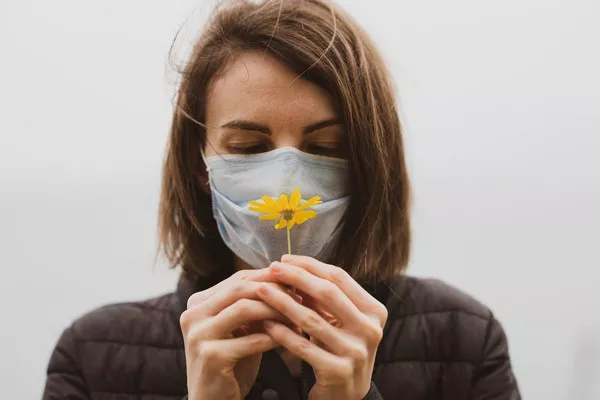Perfumes and fragrances have been used for centuries to enhance personal grooming, create pleasant surroundings, and evoke emotions. However, for some individuals, exposure to perfumes can lead to uncomfortable and even allergic reactions. Perfume allergies, also known as fragrance allergies, are relatively common and can cause a range of symptoms, from mild skin irritation to severe respiratory distress. In this article, we will delve into the causes of perfume allergies, the common triggers behind these reactions, and potential strategies for managing and preventing allergic responses.
1. The Complexity of Perfume Composition:
Perfumes and fragrances are complex mixtures of various synthetic and natural compounds, which can include hundreds of different chemicals. These chemicals are carefully blended to create a unique and appealing scent. The specific formulation of each perfume can vary widely, contributing to the challenge of pinpointing the exact cause of an individual’s allergic reaction.
2. Allergens in Perfumes:
Certain chemicals commonly found in perfumes are more likely to trigger allergic reactions in sensitive individuals. These allergens can include:
a) Isoeugenol: This chemical is often used to impart floral scents and is known to cause skin irritation and allergic reactions in some individuals.
b) Limonene: A common fragrance ingredient derived from citrus fruits, limonene can cause skin sensitization and allergic reactions in some people.
c) Linalool: Linalool is a floral-scented chemical used in many perfumes and is known to cause contact dermatitis in susceptible individuals.
d) Geraniol: Geraniol is found in rose-scented perfumes and can cause skin irritation and allergic reactions.
e) Cinnamal: This chemical, with its warm and spicy scent, is known to be a common allergen that can cause skin sensitization and irritation.
It’s essential to note that individual sensitivities can vary, and some people may react to specific chemicals while being unaffected by others.
3. Contact Dermatitis:
The most common allergic reaction to perfumes is contact dermatitis, which presents as red, itchy, and inflamed skin. This occurs when allergens in the perfume come into direct contact with the skin, triggering an immune response. Individuals with sensitive skin or a history of skin allergies may be more prone to developing contact dermatitis from perfume exposure.
4. Respiratory Symptoms:
In some cases, perfume allergies can lead to respiratory symptoms, such as sneezing, coughing, wheezing, and shortness of breath. This occurs when fragrances are inhaled, and the airborne allergens irritate the respiratory system. Individuals with pre-existing respiratory conditions, such as asthma or chronic obstructive pulmonary disease (COPD), may be more susceptible to these reactions.
5. Environmental Sensitivities:
Some individuals may experience symptoms in response to environmental exposure to perfumes, such as being in a confined space with heavily scented air fresheners or room sprays. This phenomenon, known as multiple chemical sensitivity (MCS) or environmental sensitivity, can lead to a range of symptoms, including headaches, dizziness, and nausea.
6. Managing Perfume Allergies:
If you suspect that you have a perfume allergy, there are several strategies you can employ to manage and prevent allergic reactions:
a) Patch Testing: If you have a history of skin allergies or suspect perfume as the trigger for skin irritation, consider undergoing patch testing with a dermatologist. Patch testing involves applying small amounts of potential allergens to the skin under adhesive patches to identify specific allergens causing contact dermatitis.
b) Fragrance-Free Products: Opt for fragrance-free or hypoallergenic personal care products, such as soaps, lotions, and laundry detergents. These products are formulated without common fragrance allergens and may reduce the risk of skin reactions.
c) Gradual Exposure: If you enjoy wearing perfume, consider trying a small amount of a new fragrance on a small area of your skin first to gauge any potential reactions. If no reaction occurs, gradually increase usage and observe for any adverse effects.
d) Avoiding Strong Scents: Be mindful of exposure to heavily scented environments, such as perfume counters or stores, and choose well-ventilated spaces when possible.
e) Opt for Natural Fragrances: Some individuals may find that they have fewer reactions to perfumes made from natural essential oils rather than synthetic fragrances. However, it’s essential to remember that natural compounds can also be allergenic for some individuals.
f) Consult a Healthcare Professional: If you experience severe allergic reactions or respiratory symptoms, consult with a healthcare professional. They can provide guidance on managing allergies and may recommend allergy medications or other treatments if necessary.
Conclusion:
Perfume allergies can be a source of discomfort for many individuals, with symptoms ranging from skin irritation to respiratory distress. The complexity of perfume compositions and individual sensitivities make it challenging to pinpoint the exact cause of an allergic reaction. Common allergens in perfumes, such as isoeugenol, limonene, linalool, geraniol, and cinnamal, can trigger contact dermatitis and other allergic responses in sensitive individuals.
Managing perfume allergies involves being cautious with fragrance exposure, patch testing for skin allergies, choosing fragrance-free products, and opting for natural fragrances if tolerated. If allergic reactions are severe or persistent, seeking guidance from a healthcare professional is essential to determine appropriate management strategies.
By understanding the causes of perfume allergies and taking proactive steps to minimize exposure to allergens, individuals can still enjoy personal grooming and pleasant scents while protecting their health and well-being.


